Tile is an excellent material for creating a durable and functional flooring, as well as for laying sidewalks and roads. But even carefully selected colors and texture finishes may well get bored over time. An excellent alternative to a complete replacement is the additional processing of the tile.
- Why process already laid tiles
- Varieties of tiles that can be impregnated
- Basic types of protection
- How to provide comprehensive protection
- Benefits of Additional Processing
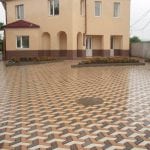
It is carried out some time after laying with special impregnation for tiles. The surface renewed in this way quickly acquires a stylish and unique look without any problems.
to contents ↑Why process already laid tiles
Processing of paving stones can be not only decorative, but also aimed at obtaining a strong and durable surface that is resistant to any external impact. Not all types of such coatings tolerate the application of paint, which forces us to look for other methods of decoration. This approach provides a unique opportunity to create an unusual effect, not only when creating a designer interior.
Floor or road tiles are subjected to huge loads every day. To increase its service life, special protective equipment is used. This allows you to get such important benefits as:
- ease of care;
- providing reliable sealing of joints and blind areas;
- creation of anti-slip effect;
- reliable protection against pollution and destructive effects of moisture;
- special “repellent” effect that prevents the appearance of spots;
- increased resistance to acids;
- improved appearance;
- creation of reliable water-repellent and dirt-repellent effect.
A beautiful and durable pavement made of ceramic tiles is impossible without the use of protective equipment in the process of laying or care. To do this, it and the adjacent blind area must be covered with special impregnation.
Varieties of tiles that can be impregnated
The following types of tiles can be subjected to additional processing:
- glazed;
- enameled;
- polished;
- with a rough or embossed texture;
- with a special protective layer.
The following varieties are also distinguished
- floor (indoors);
- natural or artificial paving stones;
- porcelain tile;
- tiled;
- for the roads.
Any procedure begins with a thorough cleaning of old impurities before applying a hydrophobizing liquid. Only after that the surface can be covered with a layer of a special composition, as well as soaks in the joints with a special sealant.
This avoids serious problems such as:
- moldiness of tile joints, seams and blind areas;
- rapid sedimentation of dirt, increased soiling;
- the appearance of indelible oil stains;
- radical color change, the effect of "fading";
- rapid destruction due to penetration of caustic alkali;
- moisture accumulation, erosion of seams.
Regardless of the functional purpose of the tiled surface, the integrated use of care products is the key to extending its use. High-quality protection allows you to get an attractive appearance and durability, as well as resistance to external negative effects.
Basic types of protection
Preventive protection of floor or paving stones prevents its rapid wear, protecting against mechanical abrasion and accidental chips. Do not spend financial resources, for example, on plaster processing of joints. All means for processing floor, tile or paving surfaces are divided into the following types:
- cleaning (allow you to remove old dirt, grease, sand and salt deposits from the surface of the tile or pavement finish);
- anti-mold for tile joints, blind areas;
- water repellents used before operation, which increases the moisture resistance of roads;
- protective equipment.
Protection for paving slabs or paving stones will cost much less than a complete replacement of the old coating. The greater the age of the paving or clinker stone, the more often they need prevention.
These materials include universal impregnation for paving stones, which extends the life of roads. This allows you to protect not only the roadway itself, but also the adjacent blind area from negative atmospheric effects, efflorescence and chemical reagents.
Before you begin the protective treatment of paving slabs and the adjacent blind area, you need to determine the purpose of the impregnation. It allows you to get a lasting effect of protection against:
- destructive effects of moisture;
- sedimentation of road soot;
- the appearance of efflorescence;
- mechanical failure;
- overgrown with moss;
- mold formation;
- salt penetration;
- exposure to ultraviolet rays;
- discoloration of stone or pavers;
- unwanted penetration of external dyes.
An additional advantage is the reduction of financial costs for road maintenance and repair.
to contents ↑
How to provide comprehensive protection
Reliable comprehensive road protection before putting into operation provides not only a kind of “protective film”, which guarantees high functionality in the future. It is ideal to do part of the operations before laying the tiled coating, since the protective impregnation of the blind area is best done at this particular time.
Processing of road or pavement of any type is divided into the following stages:
- Preliminary cleaning of already existing pollution. It is produced using special detergents, which allows you to completely wash off not only dirt, but also various chemical deposits from a tile or paving surface. The older the road, the more complicated pre-cleaning may be needed.
- Application of a hydrophobic composition. This will allow you to get the effect of a transparent water-repellent film. Even a road surface wet from rain or snow in this case will be less exposed to the destructive effect of moisture. This is especially important for roads operating in difficult climatic conditions.
- Subsequent painting with decorative compounds, for example, special varnish. Allows you to get a beautiful effect of "wet stone", emphasizing the natural color. Often used for pavers made of natural material, tarnished from time to time.
The same technology is used to “revitalize” roads covered with natural or artificial paving stones. If the pavement of any type is only planned, it must be treated with special impregnation before laying, which increases the frost resistance of concrete. This will in future prevent further destruction due to low temperatures and from the constant penetration of moisture.
to contents ↑Benefits of Additional Processing
Full care must necessarily include the use of special impregnations or decorative varnishes with the effect of "wet stone". Timely application of a water-repellent layer allows you to solve a lot of problems.
Even the most expensive and high-quality tile is not enough just to wash.Decorative or protective coating will help:
- significantly extend the service life and greatly simplify the maintenance of tiles;
- improve the natural appearance of the stone;
- give it a more beautiful color and matte sheen;
- get a wet effect on a completely dry surface;
- make the roadway and its blind area resistant to mechanical damage and abrasion;
- make the tile safe to use, thanks to a special anti-slip impregnation;
- prevent the occurrence of serious pollution or ugly stains in the future;
- create reliable protection against the appearance of mold or moss;
- provide a reliable barrier to ultraviolet rays;
- prevent fading of natural color.
A timely treatment process before or after installation will help to forget about these problems for up to 5 years. This will help the coating to look perfect at any time of the year with much less time, effort and financial resources to care for it.

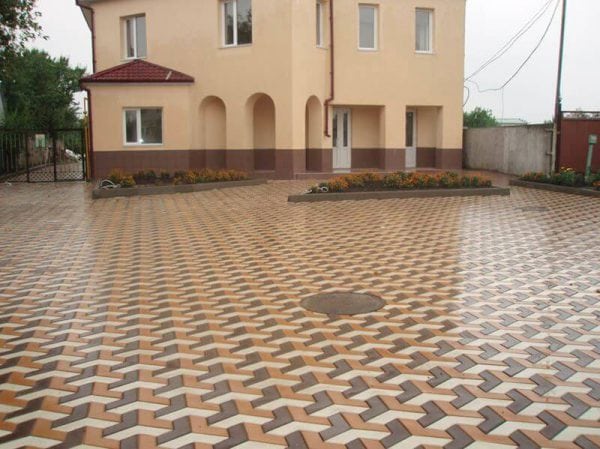
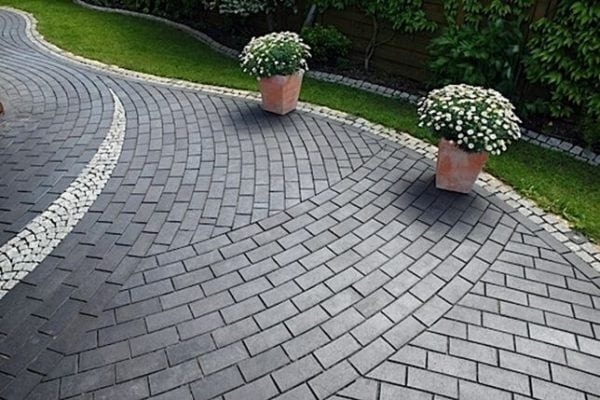
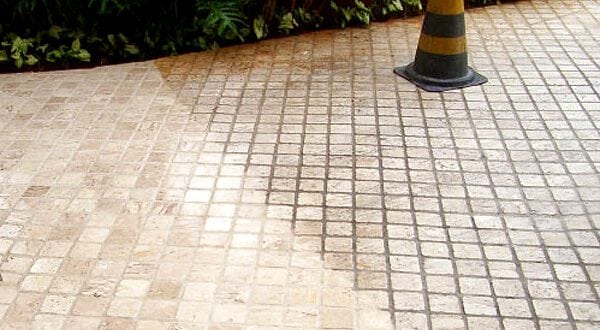
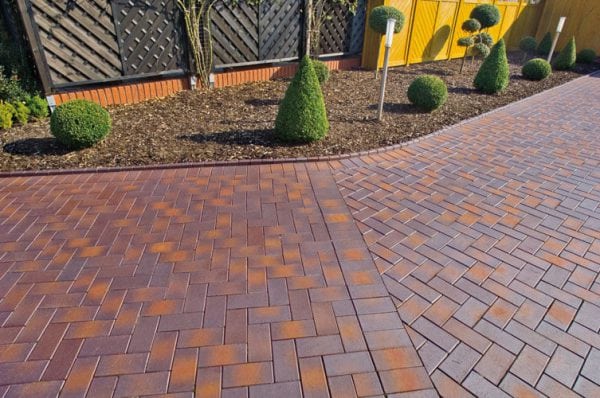
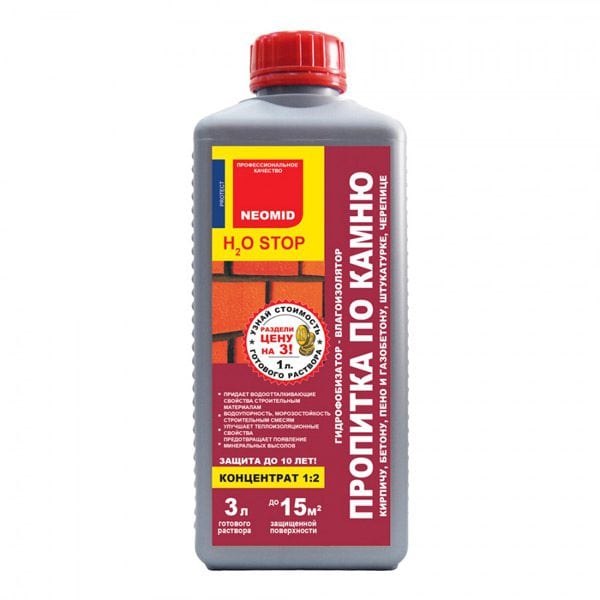
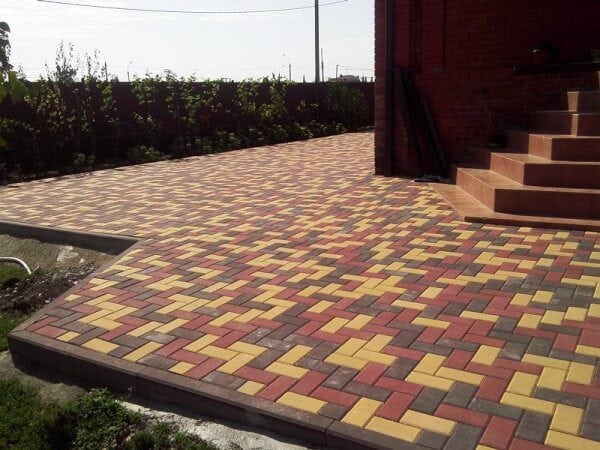
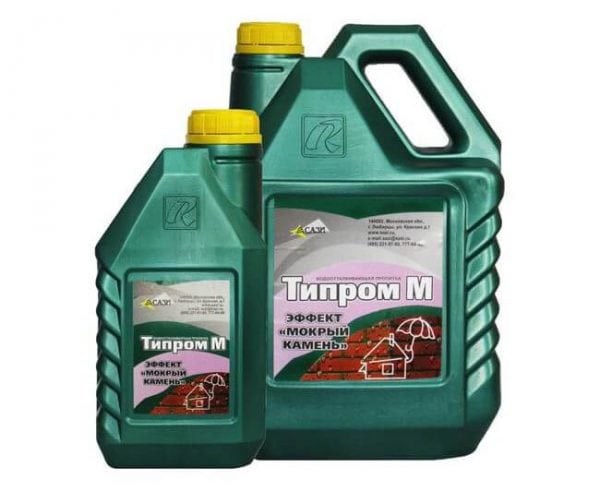




Please help with advice on how to cover the paving slabs that have just been laid out from pollution, but only so that they would not become slippery from this coating.
And I have the same question? It is interesting to them (to questions) whoever answers?